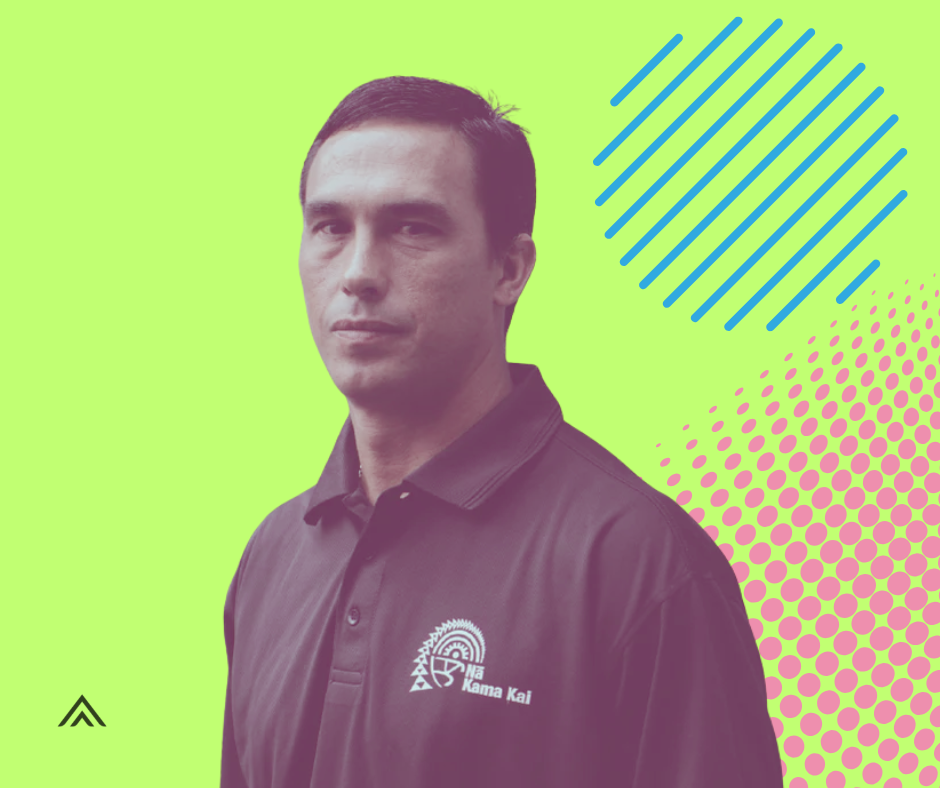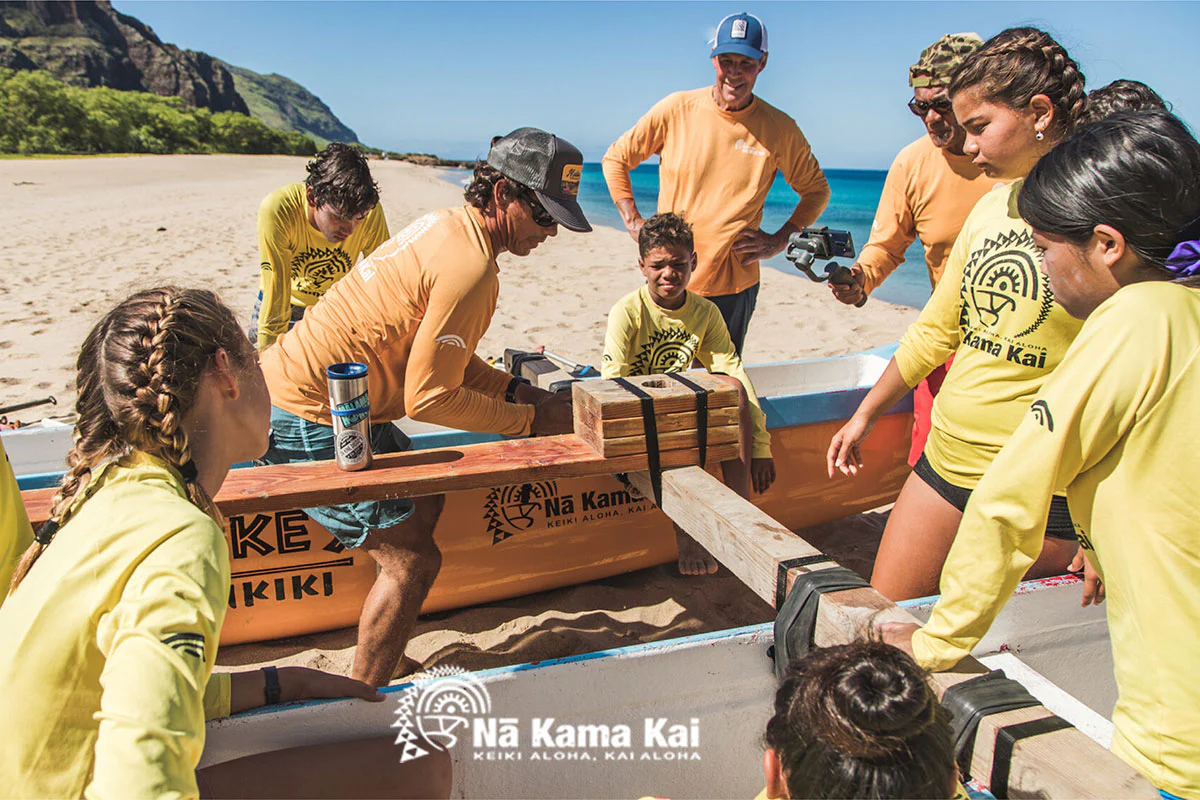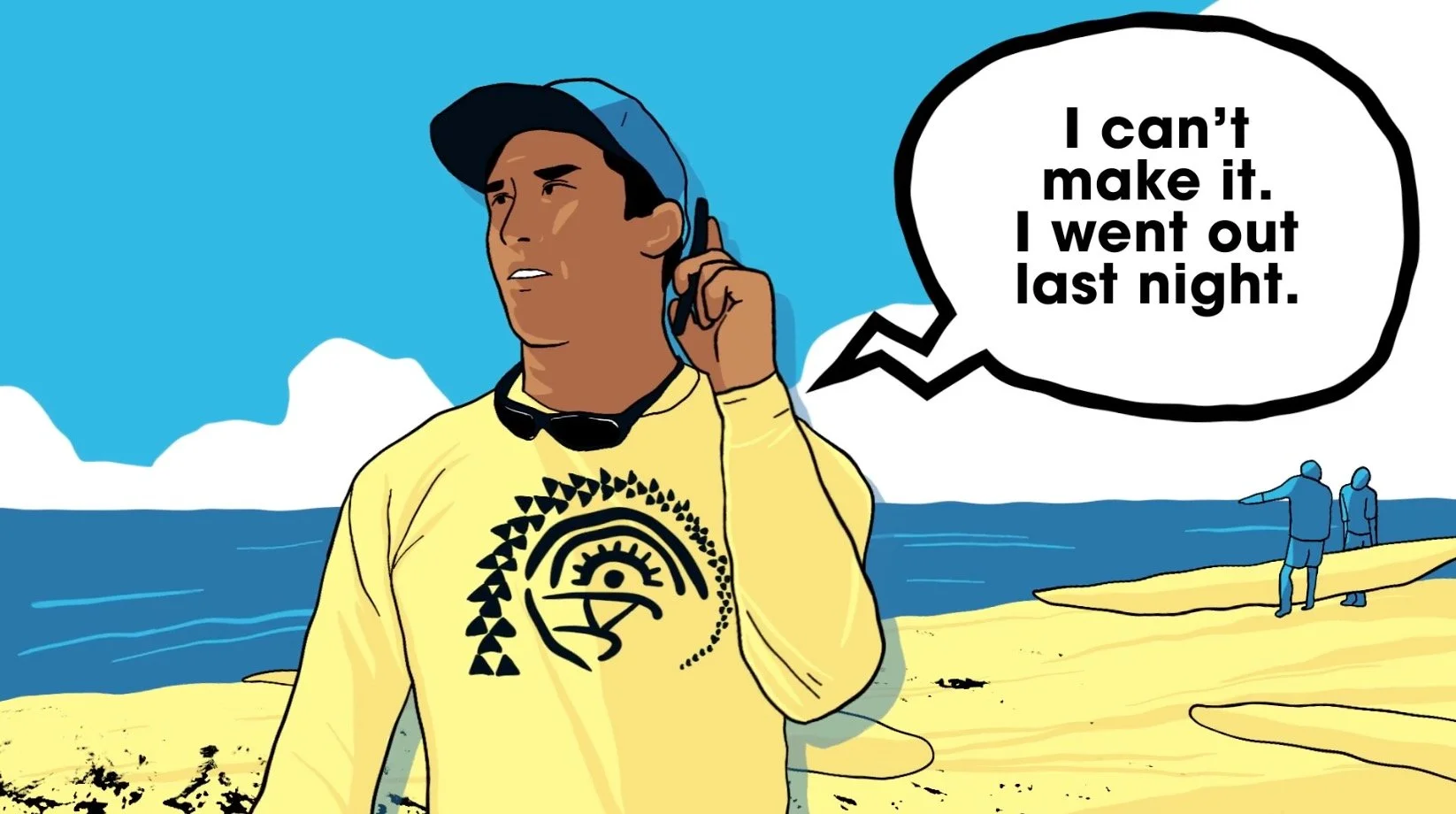How to Keep Going When the Work Feels Too Hard | with Duane DeSoto
The Story
Meaningful work will always test you. That’s how you know it matters.
Duane DeSoto grew up at Mākaha Beach, surrounded by aunties, uncles, and kūpuna who treated the ocean like a classroom and the keiki like their own. His mom had him swimming by nine months. At age four, he was already competing in Auntie Rell Sunn’s surf contests — contests where she’d hand out stickers only if the kids picked up rubbish first.
What felt like a game was actually an early lesson in kuleana.
“We didn’t know we were being tricked into cleaning the beach.”
As he got older, pro surfing took him around the world. First-class flights, international competitions, and a 22-year sponsorship with Oxbow gave him a life few kids from Mākaha could imagine. But everywhere he traveled, one thing bothered him: tourists assumed everyone in Hawai‘i had ocean access — everyone surfed, swam, knew the water.
But Duane knew the truth.
“Kids living three houses from the beach didn’t know how to swim while the world assumed access was automatic.”
He felt the gap deeply. He had received generations of mentoring. Why weren’t all local kids receiving the same?
Why wasn’t ocean knowledge being passed down?
That question became the seed for creating Nā Kama Kai, a nonprofit built to empower keiki by teaching them ocean safety, conservation, and stewardship — but launching it wasn’t easy.
For every ocean clinic, two weeks before the event, Duane would call 200 people from his phone: friends, surfers, cousins, anyone who might help.
Some said yes and never showed up.
Some stopped answering his calls entirely.
Some thought he was “only calling for Nā Kama Kai.”
“I had friends who didn’t answer my calls anymore. Relationships strained, but I thought everyone would be as passionate as I was.”
Still, he persisted — because he believed every child deserved the same ocean access that shaped his life.
The insight
In his book The Obstacle Is the Way, Ryan Holiday argues that meaningful work requires difficulty. Obstacles aren’t barriers — they’re feedback, forcing us to develop new skills, new mindsets, and new ways of serving others.
In behavioral psychology, this is called “optimal challenge”—the level of difficulty at which a person’s effort, identity, and purpose sharpen rather than collapse. Research shows that when people deeply believe in the purpose behind their struggle, they are far more likely to persist, adapt, and grow.
Duane lived this principle long before he knew the psychology behind it.
Every unanswered call, every no-show, every strained friendship wasn’t a sign to quit — it was an invitation to strengthen his mission and sharpen his leadership.
And he came to see adversity differently:
“I looked at [each obstacle] as my kūpuna giving me these roadblocks to learn something new.”
Obstacles weren’t stopping him.
They were growing him.
the application
We all face our own versions of Duane’s 200 phone calls.
Moments when effort feels unseen.
When enthusiasm isn’t returned.
When the people we hoped would stand beside us just don’t.
It’s easy to take it personally.
It’s even easier to stop trying.
But Duane’s story reminds us of something powerful:
The harder the mission, the more important the work.
Whether you’re a student taking on a tough class, a teacher trying to reach a quiet kid, an athlete pushing through plateaus, or a leader building something from scratch, the struggle isn’t a sign you’re on the wrong path.
It’s a sign you’re building something worth fighting for.
What We Can Steal
Expect obstacles, don’t fear them.
If you’re building something meaningful, challenges are guaranteed — not optional.Let purpose power your persistence.
When you know why you’re doing something, you can endure almost anything.See adversity as guidance, not punishment.
Every barrier teaches a new skill, mindset, or strategy — if you let it.Don’t expect the world to match your fire.
Leadership means carrying the torch even when others don’t show up.Keep your mission bigger than your ego.
The work you do for others will always outlast criticism, doubt, or misunderstanding.
Mahalo for reading this week’s Mana‘o Bomb.
Next week, we’ll drop another idea from Hawai‘i. A story that sparks growth, resilience, and purpose.
Keep rising. Keep learning.





